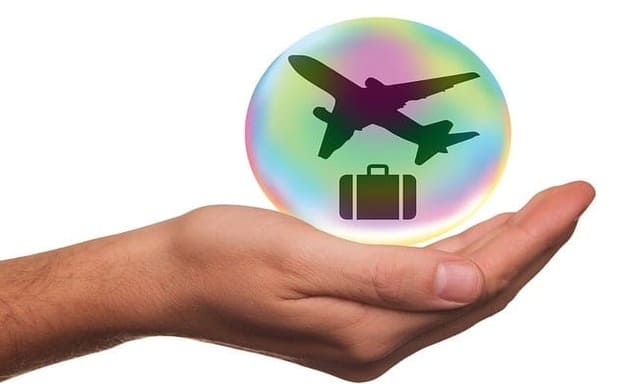
Understanding Indonesia’s local laws is crucial to ensure a smooth and respectful visit.
This article explains key regulations tourists should be aware of when visiting Indonesia, including mandatory documentation like the Indonesia e-CD.
Indonesia’s Drug Enforcement Laws
Indonesia’s zero-tolerance policy on drugs is one of the strictest globally. Tourists caught in possession of illegal substances face severe consequences, including hefty fines, long prison sentences, or even the death penalty.
Random drug tests and checks are common at airports, and authorities may detain individuals suspected of drug use.
Carrying medication in Indonesia
Even over-the-counter or prescription medications that are legal in other countries might be restricted. For example, medicines containing codeine or pseudoephedrine require a doctor's prescription and must be declared upon arrival.
Always carry your prescriptions, ensure the medications are in their original packaging, and check Indonesia's list of controlled substances before traveling.
Public Decency and Morality Laws in Indonesia
Public decency laws prohibit actions deemed inappropriate, such as public displays of affection (kissing or hugging) or indecent exposure, particularly outside tourist-friendly areas like Bali.
In Aceh, which follows Sharia law, stricter regulations apply. Unmarried couples sharing hotel rooms may face penalties, and women are expected to wear modest clothing that covers their arms and legs.
LGBTQ+ travelers should be cautious, as same-sex relationships, though not illegal nationally, can face significant social and regional legal challenges, especially in conservative areas.
Tourists are advised to research local customs and adhere to societal norms to avoid unintentionally offending locals or facing legal repercussions.
Indonesia’s Alcohol Restrictions
While alcohol consumption is allowed in popular tourist destinations like Bali, Jakarta, and the Gili Islands, its availability is heavily regulated in other areas.
Provinces like Aceh have outright bans on alcohol due to Sharia law, and consuming alcohol in public spaces outside licensed venues is often prohibited across the country. Violating alcohol restrictions can lead to fines or imprisonment, especially in conservative regions.
Alcohol taxes are high, making imported beverages particularly expensive. Tourists should purchase drinks only from licensed establishments to avoid counterfeit or adulterated alcohol, which can pose serious health risks.
Indonesia’s Environmental Protection Laws
Tourists who litter, damage coral reefs, or engage in illegal activities like wildlife trafficking can face significant fines or jail time.
Plastic bags are banned in many areas, and carrying reusable bags is encouraged.
In marine-rich areas like Raja Ampat or Komodo National Park, using reef-safe sunscreen and avoiding actions that harm marine life are mandatory.
Tourists should avoid collecting shells, sand, or rocks as souvenirs and refrain from stepping on corals during snorkeling or diving.
Respecting Indonesia’s Religious Practices
As a predominantly Muslim country, Indonesia expects visitors to respect its religious practices and traditions.
During the holy month of Ramadan, eating, drinking, or smoking in public during daylight hours is considered disrespectful and, in some areas, may result in a fine or warning.
When visiting religious sites, such as mosques or temples, dress codes are strictly enforced. Women are required to cover their hair, shoulders, and knees, while men should wear long pants.
Photography inside certain religious sites is prohibited unless permitted by authorities. Tourists should also avoid interrupting prayer times or ceremonies and keep noise levels low in sacred areas.
Import and Export Restrictions in Indonesia
Items such as firearms, pornography, narcotics, and certain chemicals are banned from import. Attempting to bring these into the country, even unintentionally, can result in confiscation, fines, or imprisonment.
Exporting cultural artifacts, antiques, or wildlife products, including items made from endangered species, is prohibited without special permits. For example, souvenirs like turtle shells, ivory, or coral can lead to legal trouble.
Tourists should purchase items only from reputable stores and verify that they comply with export regulations.
Visa and Travel Documentation for Indonesia
Tourists must adhere to Indonesia’s visa policy and other entry requirements to avoid penalties. Travelers from most countries can use a visa-on-arrival or e-Visa, but overstaying beyond the permitted duration can result in daily fines or detention.
The Indonesia Electronic Customs Declaration (e-CD) form must be completed by all travelers before arrival to declare items they are bringing into the country.
Ensure your passport is valid for at least 6 months from your arrival date, as this is a strict entry requirement. Always carry your passport, as random checks may occur, particularly in major cities.
Traffic Laws in Indonesia
Driving in Indonesia can be challenging due to congested roads and differing traffic norms. Tourists wishing to drive must possess an International Driving Permit (IDP) and are required to follow all traffic laws.
Helmets are mandatory for motorbike riders, and seat belts must be worn in cars. Drunk driving is strictly prohibited and carries severe penalties.
Police often conduct spot checks, and failure to produce an IDP can result in fines.
Final Tips for a Hassle-Free Visit to Indonesia
Here are some final tips from our travel experts:
- Stay informed: Always check local travel advisories for updates on laws and regulations
- Respect cultural norms: Learning basic etiquette can help you avoid unintentional offenses
- Prepare documents: Keep travel documents, including the ECD form, easily accessible to avoid delays or fines
Understanding and respecting Indonesia's laws not only ensures a trouble-free trip but also helps you immerse yourself in the local culture and traditions.


